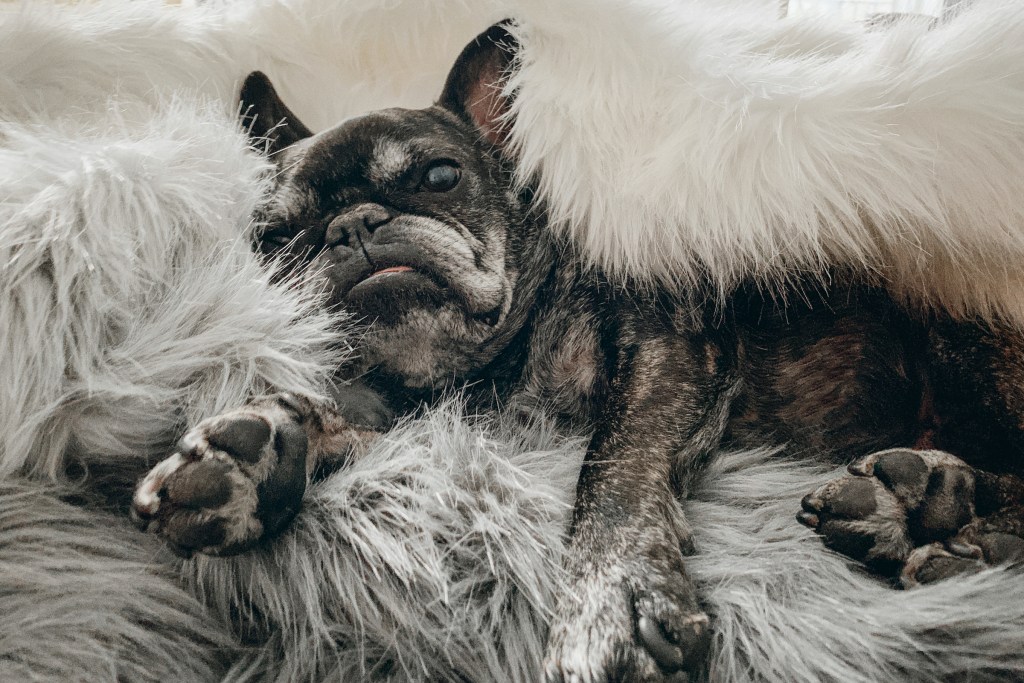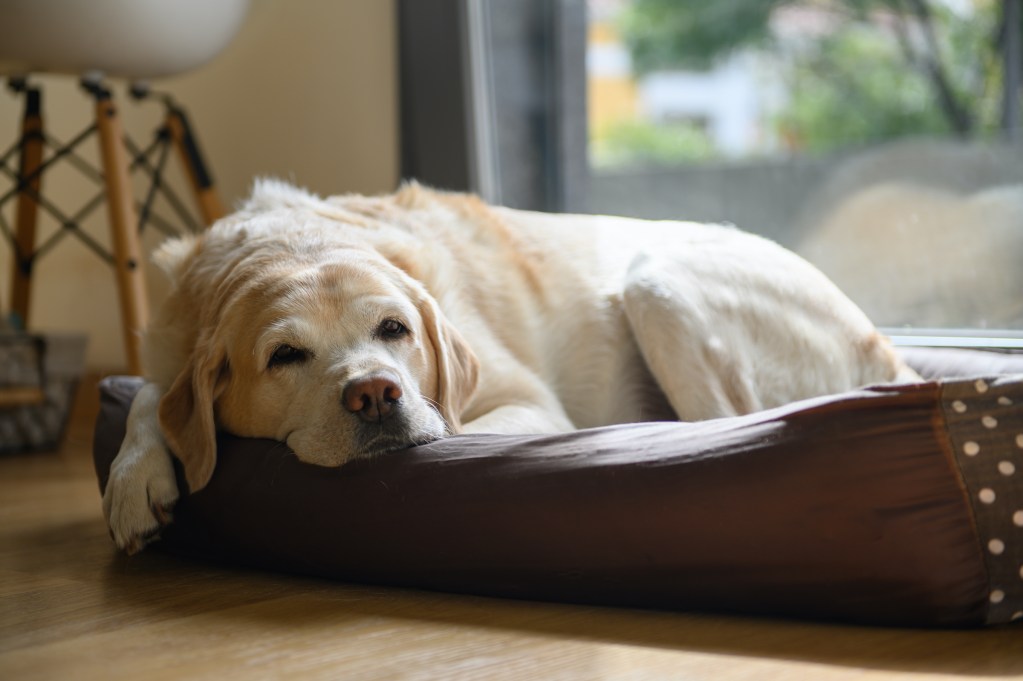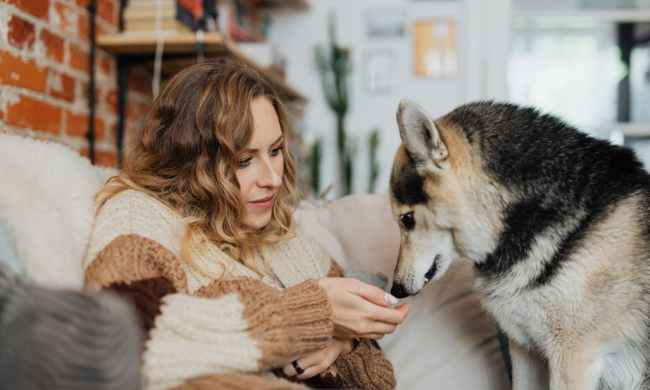If you’re like most pet parents, you don’t want to think about ever saying a final goodbye to your beloved senior dog. Sadly, though, this is an inevitable part of life, so it’s something you’ll need to consider if your dog is over a certain age.
Senior dog care can be tricky in a more logical way, too. It’s not always easy to tell how an older dog is feeling, especially if they’re experiencing a lot of normal symptoms of aging, but with an observant eye and the help of your veterinarian, you can keep your four-legged friend comfy and happy for as long as possible. Keep on reading to discover when a dog is considered elderly, symptoms of aging to look out for, and ways to care for your senior pup. Your dog will thank you!
What age is considered old age for a dog?
Many factors affect a dog’s age and condition. This makes the line between adult and senior dogs a bit blurry, but when most dogs reach that milestone, on average (via VCA Hospitals):
- Small dogs: 11 years old
- Medium dogs:10 years old
- Large dogs: 8 years old
- Giant dogs:7 years old
Of course, there are many factors that determine a dog’s relative “age.” Even if they qualify as a senior, there’s no reason to believe the end is near unless you notice any significant health changes.

How do I know if my dog is suffering?
As your dog ages, it’s normal for them to experience some physical decline. Leesville Animal Hospital notes that there are many changes you can expect, especially in your best friend’s final days. Some don’t cause any further discomfort or confusion, but others may mean your dog is not feeling well. These include:
- Loss of appetite and/or thirst
- Extreme fatigue
- Vomiting, diarrhea, and incontinence
- Restlessness and confusion
- Lack of interest in toys, food, attention, etc.
- Muscle stiffness or twitching
- Slowed breathing
If you notice any of these signs or any other strange or quick changes in your dog’s behavior, it’s a good idea to let your vet know. They will be able to advise you on the best ways to keep your four-legged friend as comfortable as possible in the days ahead.

Tips for senior dog care
Senior dog care may seem challenging on the surface, but there are many things you can do to make it easier for you both.
1. Stay as active as possible
When you exercise your dog regularly, notes the American Veterinary Medical Association, you help them fight all kinds of age-related disease. Cardiovascular strength and weight loss will make your furry friend more comfortable and able to keep up with the life they love, so there’s no reason not to take that walk.
2. Switch to a senior diet
If you haven’t already done so, getting your dog started on a diet meant for senior pups can provide many benefits. Not only is this kind of food easier to digest, but it also has different nutrient levels to support joint health and prevent weight gain. When in doubt, your vet can recommend a brand or two to try.
3. Upgrade their dog bed
Dogs experience a lot of the same aches and pains people do as they age, so it’s easy to see why it may be harder for them to get comfortable. Luckily, investing in an orthopedic dog bed can make a world of difference for your best buddy.
4. Regular vet visits
Whether or not your pet has any preexisting conditions, seeing your vet on a regular basis will help you stay on top of your pup’s health and wellness. Make sure to follow all of their instructions!
5. Be patient
As animals age and near the end of life, they experience many physical and mental changes. This can be scary, to say the least, so it’s not unusual for a senior dog to act anxious or be easily startled. Be patient with your buddy as they navigate these changes—they’d do the same for you!
6. Make your home accessible
Small changes around the house, like a staircase to help your dog onto the couch, can go a long way in lifting their spirits. You may also want to consider baby gates around hazardous areas or stairs they can’t navigate—whatever makes it easier for your four-legged pal.
7. Use a dog support sling
For pups with mobility concerns, a support sling or harness can be a saving grace. It will help you move your dog, and it will help them shift, stand, or walk without being 100% reliant on you. It will take some getting used to, but it’s nothing you and your buddy can’t handle.
8. Just be together
Even if your dog is spending most of their time sleeping, there’s no reason why you can’t make the most of every moment. Treat them to a massage, enjoy a movie together, or even cuddle up for a nap—whatever works for you.
As long as you’re checking in with your veterinarian and paying attention to your dog’s comfort, you’re doing just fine. There’s no one way to be a pet parent—whether your fur baby is truly a baby or nearing their final days. What’s most important is keeping your pup comfy and pain-free—and tons of love, of course!



